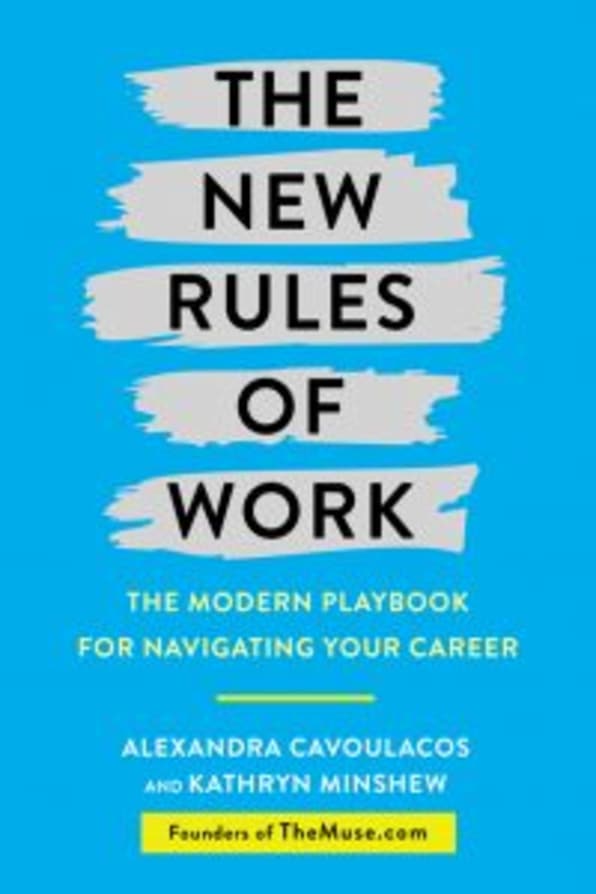All too often, people feel that they’ve already mentioned everything worthy of note in their resume, and, unfortunately, their cover letters just become shortened, regurgitated versions of that same information. That’s a bad move—here’s how to avoid it.
Weave Your Bullet Points Into A Narrative
This isn’t something you want to do. Instead of a mirror image of your resume, think of the cover letter as your opportunity to expand on some of the key points that were included there (while also showcasing a bit of your personality). Cover letters let you use full sentences, so that means you have a lot more freedom to expand upon whatever your resume enumerates much more concisely. In other words, you can explain why you’re the perfect fit for this particular company based on your experience, rather than just listing what you’ve done for which employers.
For example, instead of saying, “I was in charge of assigning quarterly budgets,” you’re much better off using that space to elaborate into, “Through the process of establishing and assigning quarterly budgets, I gained a deep knowledge of AcmeCorp’s internal financial systems—and I also became adept at negotiating between multiple stakeholders across the business to come to consensus.”
Talk Up Yours Skills, Not Your Excitement
First, it’s important to note that while you don’t want to copy and paste the contents of your resume into a new document, slap a “Dear Mr. Smith” on it, and then simply call it a day, there are a few things on your resume that are worthy of some repetition here.
Your key skills are one of them: You don’t want to take a chance of anyone missing the things you truly excel at. Try pulling out two or three key skills you want to be sure to emphasize (by looking at both the job description and your resume). Then, for each of the skills you choose, think back on some specific projects, achievements, or assignments that directly relate to your expertise in that specific area.
Next, explain those skills in your cover letter. One effective way to do this is to include a sentence like, “As a candidate, here’s what I bring to the table:” after your introduction. You can follow that up by breaking down your two or three key skills, with an expanded explanation of how you’ve used them in previous employment experiences—as well as how you’ll use them to benefit the company.
Lots of job applicants emphasize why they want that particular job. But that’s a common mistake. It’s important to remember that the hiring manager already knows you want the job—he or she is looking out for the best fit for the role, not necessarily the person who wants it most. So make sure to highlight the value you’re offering, and resist the temptation to go on and on about how much you’d love to land the position.

Share An Anecdote
Again, this is your chance to go beyond bullet points and share a little more of both your story and your personality. Remember, hiring managers hire people, not robots.
Kicking off your cover letter with a brief but attention-grabbing anecdote will demonstrate a little more about who you are personally. And you can bet it’ll stand out a lot more than a standard “I’m writing to express my interest in the Sales Coordinator position” line. The more you grab their attention, the better your chances are at actually having your letter read.
Of course, any anecdote you tell should be related to the position you are hoping to fill. Perhaps, for example, you first discovered your passion for sales while working at your childhood lemonade stand. Or maybe a recent volunteer opportunity ignited your interest in the new career field of educational consulting. Whatever it is, craft a narrative about how your experiences led you to this very job.
Here’s an example:
When I was growing up, all I wanted to be was one of those people who pretend to be statues on the street. Thankfully, my career goals have become a little more practical over the years, but I still love to draw a crowd and entertain the masses—passions that make me the perfect Trade Show Coordinator.
My last boss once told me that my phone manner could probably defuse an international hostage situation. I’ve always had a knack for communicating with people—the easy-going and the difficult alike—and I’d love to bring that skill to your Office Manager position.
Last December, I ousted our company’s top salesperson from his spot at the top of the sales leaderboard—and I’ve been there ever since. Now I’m ready for my next big challenge, and the Sales Manager role at X company just might be it.
While you won’t find the title “Community Manager” listed on my resume, I’ve actually been bringing people together online and off for three years while running my own blog and series of meet-ups.
This cover letter doesn’t read anything like the candidate’s resume—and that’s a good thing.
This article is adapted from The New Rules of Work: The Modern Playbook for Navigating Your Career by Alexandra Cavoulacos and Kathryn Minshew, cofounders of The Muse. It is reprinted with permission.
(63)